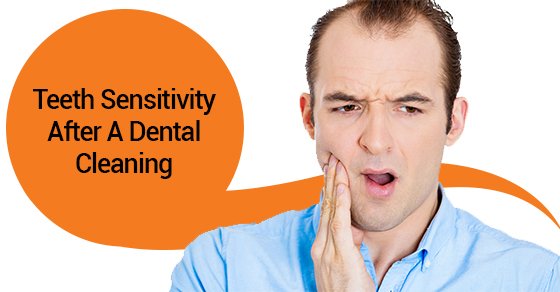Tooth sensitivity is an awful feeling! Tooth sensitivity, or dentin hypersensitivity, involves pain or discomfort in one or more teeth.

Tooth sensitivity is often reported after a dental cleaning. This makes sense, as your hygienist or dentist will often go deeper into your teeth during a cleaning than you do during brushing and flossing.
What Causes Tooth Sensitivity?
Tooth sensitivity happens when gums recede to expose the underlying roots of the tooth. Unlike the tooth, the roots of the tooth are not covered by hard enamel and are incredibly sensitive. With each tooth there are thousands of tiny channels leading to the pulp—the tooth’s nerve centre.
If these channels become even the slightest bit exposed, it can lead to a great deal of sensitivity as stimuli such as heat, coldness, and pressure are able to reach the nerve in the tooth.
There are many, many causes of tooth sensitivity, including:
- Brushing too hard: This is very common. About two in every three people apply too much pressure when brushing, or use a toothbrush that is too hard.
- Poor oral hygiene: Tartar and bacteria build-up can result in gum disease and gum recession.
- Cracked, broken, or ground teeth.
- Following dental procedures such as whitening, cleaning, capping, or fillings.
- Diet: enamel can be eroded by exposure to acidic foods; over stimulation by hot or cold beverages and foods can also cause sensitivity.
- Mouthwash: Long term use of mouthwash can damage enamel and cause tooth sensitivity.
- Nerve damage in the teeth.
These are just a few of the causes of tooth sensitivity, which vary greatly from person to person.
How Can I Treat Tooth Sensitivity?
Tooth sensitivity is very common. Fortunately there are many ways to prevent and treat it!
Taking good care of your gums and teeth is the ultimate preventative measure against tooth sensitivity. Maintaining impeccable oral health habits, using a soft toothbrush, and flossing are instrumental in maintaining healthy strong gums, and avoiding gum recession.
Once you already have gum sensitivity, there are some steps you can take to ease the pain:
- Use toothpaste for sensitive teeth.
- Brush gently.
- Avoid acidic food and drinks.
- Use fluoride mouth rinse to help remineralize and harden the surface of the tooth.
- Use a desensitizing toothpaste 2-3 weeks prior to having teeth cleaned.
If you suffer from tooth sensitivity, it’s important to notify your dentist. There are many things they can do to judge the severity of the sensitivity, and to desensitize and remineralize your teeth.
Remember, prevention is best. Excellent oral health equals excellent overall health!